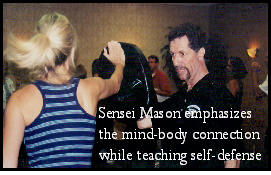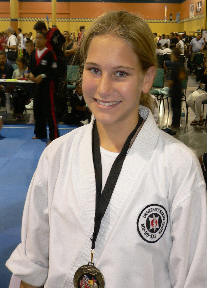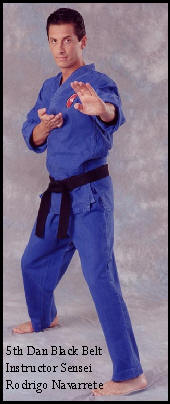
AUGUST NEWS
Consciousness, Courtesy, Manners and more
All of us have two “spheres of consciousness” (brains) in our heads; for the most part the rest of our brain functions unconsciously, which is why Martial Arts training here at UKC works to produce excellent results over time. It impacts both of these “spheres of consciousness” while teaching specific physical movements based upon important general principles. Consequently we have body of students who are able to demonstrate excellent focus, self-control and courtesy, even when challenged by difficult emotional conditions.
Research has shown that most of the time people behave as if their brains were cut in half; the left hemisphere (considered dominant) chatters away incessantly while the right hemisphere daydreams. Since each hemisphere has control of only half of the body, the right brain controls our left side and vice versa, Martial Arts training forces the two halves to communicate and cooperate, to develop skillful movements involving the entire body. Through this process each hemisphere receives feedback, via the bodies nervous system, regarding the contribution of its counterpart. For many adult students the initial shock of realizing how challenging even the most basic Karate moves are is quite hard to accept; yet we all accept that if we are right handed writing with our left hand would be a huge challenge, just like kicking with our left leg. Over time in training the two hemispheres are able to learn to share and integrate information, using the experience of the body as common ground. As training progresses to higher levels, indicated by the different color belts, even more integrated consciousness is required. Breathing is used throughout training, even at the beginning level, because we can learn to cue and trigger specific moments of coordinated movement through a specific breathing regimen, to maximize balance, flexibility and agility. This training leads to the attainment of ever higher levels of physical self-control, and as a result we can teach students to develop more and more emotional self-control. This practice regimen is also linked to breathing techniques that are reinforced through natural biofeedback mechanisms, specifically the tendency of strong exhalation to stimulate the parasympathetic nervous system, to lower the pulse rate and blood pressure, and trigger a relaxation reflex. In other words, our Karate students learn how to relax under pressure and deal with stress.

The achievement of a high level of physical and emotional self-control, along with the experience of achieving cooperation between the two hemispheres of the brain while training in class, encourages students to behave cooperatively, and to demonstrate self-control in other aspects of their life at home, at work and, in the case of children, at school. This behavior is what we recognize as courtesy and good manners, both of which we also directly encourage in all of our classes and within the Dojo in general.
Shihan Robert H. Mason © 2005
US Open ‘05 Success
Because last months newsletter was a few days late we managed to include information on Sensei Jeff Liotta’s wins on both Traditional and Creative Forms competition. Also at the event representing UKC was Skylar Gould who performed outstandingly, running a strong Kata and placing 5th in her Advanced Fighting Division.

(Skylar Gould representing Team MuDoKai at the US Open)
Nutrition and the Martial Arts:
Awareness regarding children’s nutrition will allow them to grow into the future
There may have been many reason why you enrolled your child in classes here at the Karate Center: perhaps so that they can become respectful, confident, focused, competent, balanced, alert, reflexive... and the list goes on as to what your child can achieve through the martial arts. But let’s not forget one key element that fuels all of this; and that is, your child’s eating habits at home and at school. Without high quality nutrients, in just the right quantity, the body cannot function to its optimum capacity. We must feed the muscles and nervous system, while not clogging up the delivery system, including the bowels and the arteries.
Karate, like other sports, demands strength, endurance and resilience from our bodies. We need to bear in mind the ongoing process of physical growth and development, alongside the specific needs that our bodies have to get through a particular training session. For example, one hour before your child goes to class they should fuel up on nutritious foods. What I mean by this is not to be stimulated by sweets, but energized by appropriate nutrients.
As part of developing an approach to nutrition that fits with the active lifestyle of a Martial Artist I have an example here of some of my preferred options:
Breakfast choices – whole grain low sugar cereals, fruits, eggs, wheat toast, milk and juices (not fruit flavored drinks that are primarily sugar, but 100% juice)
Lunch and dinner choices – should include lean meats, vegetables, fruit, whole grains. Fried and processed foods should be eliminated, or at least kept to a minimum.
Snack choices – fruit, cheese, celery and carrot sticks, (high in minerals and potassium) “fun” foods such as cookies and chips should only be eaten in moderation. Let’s understand, some of these “fun” foods will not energize anyone, they contain mostly empty calories.
As a personal trainer and Martial Artist, I have found that children's physical foundation is based on their eating habits. A powerful race car will not run at its best without the right fuel. If you put diesel fuel in you Lotus, Lexus or Porsche (or any vehicle not specifically set up for it) the car will not run. With children it is important to remember that if it’s in the house they will eat it, so try to shop for healthy foods. The result will be a child that is growing up fit and well-fuelled and ready for activities. With obesity on the rise among young people it is imperative that we do not overfeed children. Generally however, children will not tend to overeat if they are getting all of the nutrients they need from their food, along with vitamin and mineral supplements. Overeating occurs when our bodies crave nutrients and we go in search of them either in foods that don’t have them at all, or that have them only in small proportion to the empty calories that comprise the majority of “junk foods”.

Sensei Rodrigo Navarrete © 2005
A Footnote from Sensei Mason:
I asked Mr. Navarrete to write this article because his background and approach to nutrition is much more mainstream than mine. I eat no meat, fish or eggs and take mineral and vitamin supplements daily along with an apple, a protein drink and a salad sandwich.